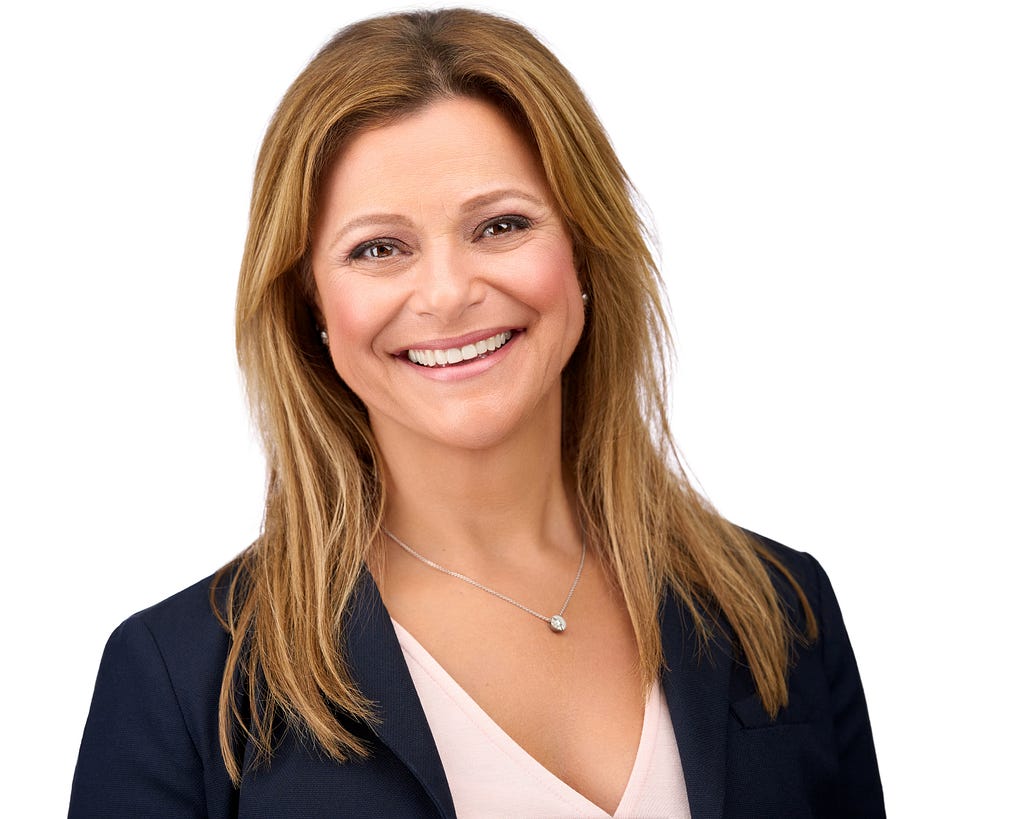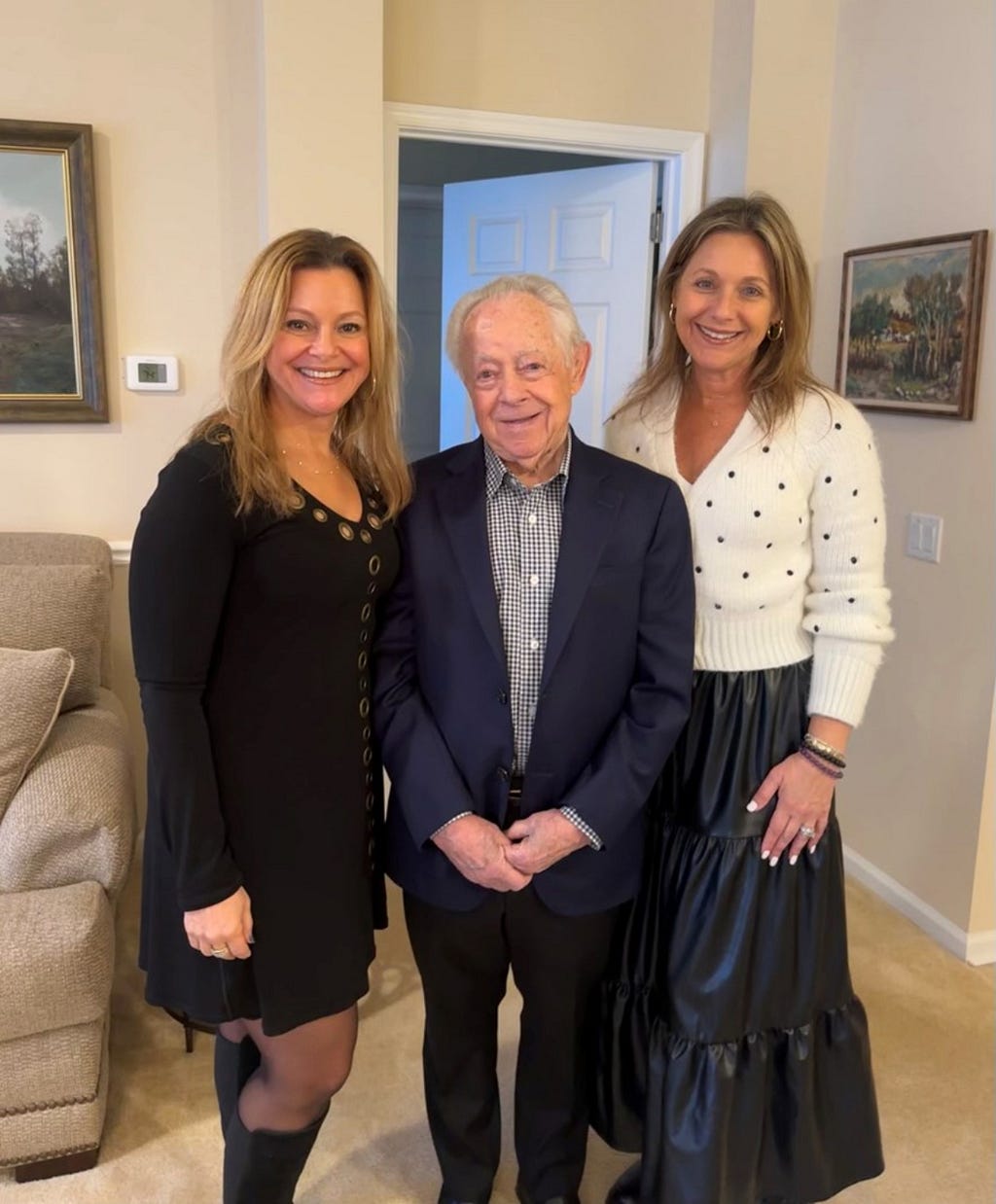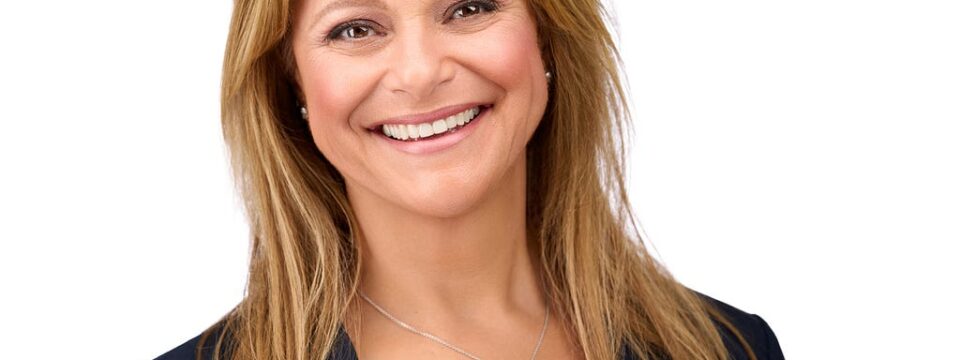Upstanders: How Ann Arnold of ‘The Mark Schonwetter Holocaust Education Foundation’ Is Standing Up Against Antisemitism, Racism, Bigotry, and Hate

Always be open to learning new things — You never know what you may learn and what that will teach you about others. Like my example above, learning how people perceive white people taught me something new and gave me a deeper understanding of perceptions.
An upstander is the opposite of a bystander. A bystander is someone who stands by while others are being bullied, maligned, or mistreated. An upstander is someone who stands up to protect and advocate for the victim. We are sadly seeing a surge of hate, both online and in the real world. Many vulnerable minorities feel threatened and under attack. What measures are individuals, communities, and organizations taking to stand up against Antisemitism, Racism, Bigotry, and Hate? In this interview series, we are talking to activists, community leaders, and individuals who are Upstanders against hate, to share what they are doing and to inspire others to do the same. As part of this series, we had the pleasure of interviewing Ann Arnold, co-founder of The Mark Schonwetter Holocaust Education Foundation.
Ann Arnold and her sister, Isabella Fiske, co-founded The Mark Schonwetter Holocaust Education Foundation in late 2019 in honor of their father. Ann is the CFO of H. Arnold Wood Turning, Inc. and the Chief Strategy Officer of BIG (Buyers Intelligence Group). She graduated from Lehigh and earned her CPA working at Deloitte & Touche. She was CEO of Lieberfarb for over 20 years. Currently. she is the Treasurer of the Triple Negative Breast Cancer Foundation and a board member of Day’s Jewelers, a leading jewelry retailer in Maine and New Hampshire. She published “Together: A Journey for Survival,” which retells her father’s story of survival, and was awarded the Simon Wiesenthal Center’s Heroes for Tolerance Award.
Thank you so much for doing this with us! Before we dive in, our readers would love to get to know you a bit better. Can you tell us your “Origin Story”? Can you tell us the story of how you grew up?
I am the daughter of a Holocaust Survivor. My sister and I grew up in Livingston, NJ, and had always known that our father’s childhood was very different from our friends’ parents. Since we were young, he had slowly started to share small stories of what he went through with us. My maternal grandfather also survived; however he never spoke as much about what he went through. My father immigrated here in the early 60’s with no money and not knowing a word of English. He got a job sweeping floors in a jewelry factory, and eventually went on to own his own jewelry company. I grew up in the jewelry industry, and, after earning my CPA working at Deloitte & Touche, I joined the family business.
In 2009, I had a life changing experience on a trip back to Poland. It renewed my faith in mankind and motivated me to come home and finally document my father’s story from beginning to end. It started as a blog, which eventually turned into my book, “Together: A Journey for Survival,” which I published in 2016. By this time, we had sold the family business, and my father was retiring.
We began speaking in schools, with my father telling his story to students all over. One day when we were speaking at a local school in NJ, the school wanted to purchase a classroom set of books. The cost was a little over $300 for the books. The school had to go to the local synagogue to try to get a donation to secure funding to purchase the books. When I questioned why they had to find funding, I was shocked to find out, due to budget cuts, schoolteachers had no way of bringing in materials and resources for Holocaust Education. My sister and I always wanted to create a foundation to honor (not remember) my dad. I quickly realized that there was a huge need to help teachers secure funding to help implement or enhance their Holocaust Education programs. The foundation was launched late 2019 and started to award grants to teachers in 2020. To date we have awarded over 430 grants reaching over 114,000 students in 31 states.
Can you share a personal story of how you experienced or encountered antisemitism, racism, bigotry, or hate? How did that experience shape your perception and actions moving forward?
Being the child of a Holocaust survivor, I have always known the devasting effects of antisemitism. I grew up cynical, and, although I knew my father survived due to the kindness of those around him, I was not completely convinced that people were overall good. When I was working at a public accounting firm in my early 20s, I was speaking to a colleague and mentioned that I was Jewish. After I registered the shock on his face, he looked at me and said, “You are one of them?” and proceeded to walk away. He never spoke to me again.
Can you describe how you or your organization is helping to stand up against hate? What inspired you to take up this cause?
Our organization’s mission is to provide grants for educators to teach anti-hate initiatives to students nationwide through Holocaust Education. Our vision is to inspire students to create a world where all people are treated equally and with kindness and respect. Because of my father’s speaking, we see first-hand the tremendous impact Holocaust Education can, and does, have on students, and how it results in students being more empathetic, kind, and respectful.
Can you tell us the most interesting story that happened to you since you began your work as an Upstander?
Very early on, the book had just been published, we were speaking at a school in Newark. Most of the children were black and Latino. A teacher asked us, “Do you know what these kids’ biggest take away was from the book? They had no idea that there was violence against white people. They just assumed that if you were white, you had it made. They could not get over the fact that my father was a white man.” This shocked me and really opened my own eyes to the perceptions people have. I had no idea about this.
Could you share an inspiring story that demonstrates the impact your efforts have had on an individual or community?
Through the foundation we provided a grant to a teacher in Yancey County, NC. This was an email we received regarding the grant we awarded:
“Thanks to the Mark Schonwetter Holocaust Education Foundation…books were sent to Yancey County North Carolina.” This area is quite poor and rural. The 88 Club, a notorious Nazi Youth group, actively recruits members from Yancey County. Two classes in the middle school can simultaneously read the book! Your foundation is pushing back against pro-Nazi youth groups and is reaching into Yancey County, NC!!!!” — Michael Abramson, North Carolina Council on the Holocaust.
This why we are doing what we are doing. We know that the key is to educate our youth to understand history so that they can make a brighter tomorrow.
In your opinion, why do you think there has been such a surge of antisemitism, racism, bigotry, & hate, recently?
Antisemitism has been around for a very long time, and you can trace it back to the days of the Crusaders. The same can be said of racism, bigotry, and hate. The difference today is that with social media the rate at which you can communicate or get messages out has greatly increased. This has led people to use these platforms to perpetuate hate. Where once, it may have been only spoken about behind closed doors, now those doors have opened. Now it is up to us to make sure that our children are properly educated. They need to understand that we are more alike than we are different. I always tell students that we all have a voice and a choice. We can choose to be lured into the hate speech and violence that we see everywhere, or we can choose to be kind and respectful. My hope is that the voices of goodness become loud enough to drown out the voices of hatred.
Are there three things the community/society/politicians can do to help you address the root of the problem you are trying to solve?
We need to improve our education system. Only 27 states mandate holocaust education, and even in those states, the guidelines are not consistent. We must make it a requirement to teach the history, and more than in just one 50-minute period so that a box can be checked off. All the states should have Holocaust Education mandatory. Additionally, mandating and funding are two separate issues. The teachers need the proper tools to effectively teach this important topic.

What are your “5 Things Everyone Can Do to Be an Upstander”? If you can, please share a story or an example for each.
1. Smile — When you smile at those you meet, you are welcoming.
2. Be kind — Kindness can go a long way; you never know if the person you are interacting with may need a kind word to help them get through the day.
3. Always be open to learning new things — You never know what you may learn and what that will teach you about others. Like my example above, learning how people perceive white people taught me something new and gave me a deeper understanding of perceptions.
4. Silence is complacency, and you never know how that will affect you later. When we went back to Poland in 2009 for the cemetery ceremony, we met people that remembered my father and aunt. They had lived across the street from them and had played with them as kids. They started to recount stories of how the Nazi’s treated the Jews, and how they were threatened if they helped the Jews. It was almost like they were purging themselves of this guilt they had carried around. I tell students this story all the time, and then I bring it back to them. I try to bring it to their level. Think about bullying. There are three sides: the one being bullied, the one doing the bullying and then the vast majority that do and say nothing. How will that affect them later? What will they think in 20 years when they run into that kid that was being bullied and they did nothing? How will it affect them if one day they have a child that becomes the one being bullied?
5. Call your friend that is being affected by the current event and check on them, even if you personally are not being affected. I cannot tell you how many of my Jewish friends are in shock about the deafening silence they are getting from their non-Jewish friends with all that is going on in this country today. But when a non-Jewish friend reaches out to just check in, say hi, check to see how you are doing, it means the world. People feel alone in this world sometimes, and they just need to know that someone cares.
How do you handle the emotional toll that comes with being an Upstander?
There have been times, especially recently, that I too forget the goodness that exists. It is so easy to fall down a rabbit hole and get caught up in all the craziness of the world. I personally had to start limiting my social media use because of all the hate and craziness that is happening today in the world. But then I was reminded about the goodness that exists. When Oct 7th happened, I forgot my own message. Never forget that goodness exists.
If you were in charge of the major social media companies, what would you do to address the hate on the platforms? Could you share specific strategies or policies that you believe would be effective in addressing hate on social media platforms?
It is so hard with generative AI and deep fakes. There needs to be better policies to determine what is real and what is not. With algorithms the way they are now, if you start searching or watching hateful videos, the social media platforms will continue to show you those videos. So how about if we can somehow recognize those patterns, so when someone is looking up facts that are incorrect, the algorithm could then also put into their feed the other side of the situation. This will hopefully allow people to make more informed decisions rather than be influenced by one narrative.
How would you answer someone who says: “Hate speech is permitted under the US Constitution. Why are you so worried about permitted and legal speech?”
Free speech is permitted under the constitution. However, when that speech crosses the line and insights fear and promotes and encourages destruction and death, it cannot go unchecked. It is one thing to stand up for what you believe and peacefully protest, however, when violence is the goal, it must be stopped. When Hitler came to power, he did so very cleverly. He first started in the Parliament and then slowly took over the country. He used propaganda and fed off people’s biases. The only way to combat this is by proper education so that no one can hold this type of power over anyone else. We have seen the results of hate speech in history, let’s not be naive enough to think it cannot happen here or again.
Are you optimistic that we can solve this problem in the United States? Can you please explain what you mean?
I have faith in our younger generation, I have faith in people. I believe that if people know and truly understand the truth, goodness can prevail. But the only way to get to this point is by starting at a young age. Once someone is near adulthood, it is very hard to change what they believe in since birth. But if we can get to them at a young age, they will have the tools in their arsenal to combat hate.
What advice would you give to someone who wants to become an Upstander but doesn’t know where to start?
Start by being nice to those that are around you. Start by genuinely smiling when you see someone new. Don’t make assumptions about people. Get to know them first. This will lead to more, but you must start someplace!
In what ways can education be leveraged to combat antisemitism, racism, bigotry, and hate? Education is the single most important weapon we have to combat antisemitism, racism, bigotry and hate.
We cannot be afraid of the past. We need to embrace teaching our students about what has happened in history, as a way of educating them about what happens when hate goes unchecked. We must show them the consequences and results, and how horrible atrocities can happen when we turn a blind eye to hatred. Only then can we expect them to become upstanders.
Can you please give us your favorite “Life Lesson Quote”? Can you share how that was relevant to you in your life?
My father Mark Schonwetter always says, “Live every day with love and kindness and you will accomplish so much more in life.” I love this. It makes me remember to smile to everyone I see, to be kind, to not pass judgement, and to remember that the world would be a better place if we all could just find a way to live together in peace.
Is there a person in the world, or in the US with whom you would like to have a private breakfast or lunch with, and why? He or she might just see this, especially if we tag them. 🙂
I would love to sit down with some of these students that are protesting today on college campuses. I would love to be able to ask them specifically what they understand about what is happening. What history have they studied? Do they understand what words like genocide and apartheid mean? I would love to encourage them to continue to speak out about the injustices of the world, but do so by first looking up facts and understanding what they are saying. As a child of a Holocaust survivor, when I hear and see some of these students using swastikas, saying Hitler was right, and some not even knowing exactly what they are protesting about it makes me realize that our education system is at fault. We allowed these young men and women to graduate high school with a goal of passing standardized tests rather than the goal of making sure they understand history.
How can our readers further follow your work online?
Please visit www.mshefoundation.org
https://www.facebook.com/mshefoundation
https://www.instagram.com/mshefoundation/
https://www.linkedin.com/company/mshefoundation/
This was very meaningful, thank you so much. We wish you only continued success in your important work!
Upstanders: How Ann Arnold of Mark Schonwetter Holocaust Education Foundation Is Standing Up… was originally published in Authority Magazine on Medium, where people are continuing the conversation by highlighting and responding to this story.
